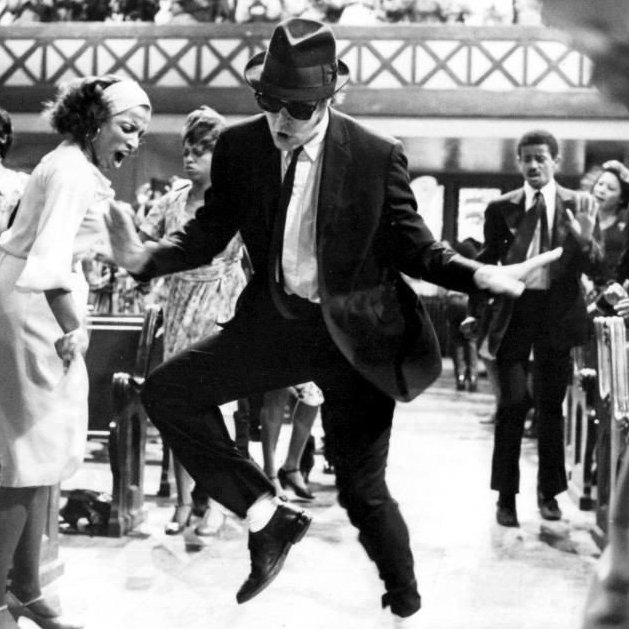Okay, not literally.
I’m not so worldly-experienced to have actual carnal knowledge of Leonard Cohen himself. However, as a long-standing fan of the high priest of pathos (who did not shy away from discussing his sexcapades through his artistry in ways which ricocheted between brutal and beautiful) I do have carnal knowledge of him, of sorts. I mean, this was a dude who wrote an album called Various Positions, for crying out loud. Go figure.

Leonard Cohen’s life was multifaceted, to say the least, and his body of work was vast. His life really did imitate art, or maybe it was vice versa. He began as a poet and at some point realised that in order to gain more mainstream recognition for his talents as a wordsmith, he would need to put music to it (which makes sense as song writing is modern-day poetry). It’s also very difficult for anyone born after about 1895 to make any kind of sustainable living off of being poet exclusively. That ship has long-since sailed. So he joined the ranks of the folk community, rubbing shoulders with the likes of Bob Dylan, Joni Mitchell, Paul Simon, Joan Baez, Patti Smith, and so on, and found a new platform to waft his tactile words around.
For those just tuning in (as in you’re not overly/at all familiar with Leonard Cohen), I feel it’s only fair to say now that he did actually, over the course of his expansive career, cover a whole bunch of topics other than sex. He just happens to be the only writer I’m familiar with who was/is capable of creating such elegant smut… not that I’m particularly on the look-out for that sort of content, but we live in a world where sex sells, and sex is everywhere – whether or not you happen to be getting any yourself. Which Leonard clearly was…
I’ve been toying with the idea of writing something about Leonard Cohen for a while now, as his writing is one of my own key influences, but have found myself umming and ahhing over what angle to take. Yes, I could probably bash out a pretty good biography on him from a more colourful approach than say, Wikipedia, but really where’s the fun in that? He was too free-spirited and his work too special for some little shit like me to attempt to cover its entire expanse by way of a pale WordPress blog. So I thought I’d go for angles. I may (and probably will at some point) go in for the other areas of his life that are worth documenting. This was a man who lived a very bohemian life on the Greek island of Hydra for several years during the 1960s, then a couple of decades later would forsake that hazy romantic Mediterranean lifestyle in favour of becoming a Buddhist monk in the mountains of Tibet. So it’s safe to say the content is certainly there, so ya know, watch this space.
So the first angle I agreed with myself on was his sexual expression by way of his art. And why not? Sex and art don’t necessarily equate to pornography. More like eroticism, if we have to put a label on it. Not that we need to really. It’s the 21st century, we should be able to just discuss sex for what it is, but hey-ho. I’m sure there’ll be readers accusing me of honing in on the crass angle, and bypassing his other relevant opinions in favour of smut. I’ll allow it. It was obviously an important subject to him to arguably be the spinal column that propped up his body of work.
I think it needs to be said now: I’m not naive. I know that the subject of sex in music is not exactly a rare thing. I’m aware of this. Kings of Leon wrote a song called Sex on Fire back in 2008 and it was number one for weeks and weeks. And the lyrics are not subtle. I’m also familiar with the song Closer by Nine Inch Nails, which makes Sex on Fire sound like a nursery rhyme…
But like virtually every outlet in the twentieth century – from movies to fashion, and everything in between – music was no different in the sense that it was shackled by conservative restrictions in a desperate bid to maintain an air of modesty that our Victorian ancestors would be proud of. That is, right up until around the 1950s, when artists such as Elvis Presley and even Marilyn Monroe and her musical performances in her movies were like “Hmm. You know what. Let’s see what happens when we rock the boat a little….” And what happened? America’s youth – both male and female – exploded like a (sex) bomb.
But they were still quite modest by today’s standards, and here’s why: during the first half of the twentieth century, the film industry was dominated by something called the Hays Code. I won’t go into it in full because it’s long and boring, but basically it was a set of restrictions that prohibited writers and directors from screening anything even remotely risqué. And it wasn’t even just a generic “no tits and ass” thing. It was that plus a ton of ridiculous things like ‘it is prohibited to show a toilet being flushed” or “it is prohibited to film a male and female on a bed together” – even fully clothed. It was as if the American public, up until circa 1950, were considered to be children and shouldn’t be exposed to anything that wasn’t 100% wholesome imagery, and then almost collectively, everyone said “Fuck it. We want to see toilets being flushed and we want to see Grace Kelly and Humphrey Bogart getting their jollies off together on a bed. And show us the tits and ass while you’re at it.”
Well, it was kind of the same with the music industry. After the invention of the contraceptive pill in the 1960s, the post-war kids were doing it like bunnies, scot-free, so it’s natural that while society was evolving, so was the entertainment industry. Vive la sex!
Which, timing-wise, couldn’t have worked out better for Leonard Cohen. Screw the world of poetry. The stages of Glastonbury and Coachella are where it’s at.
So what, you may or may not be asking, (if you’ve stuck with me this far) is the big deal? Like I’ve said, every Tom, Dick and Harry who can wield a guitar has warbled away about bumping uglies. No big deal. What makes this Cohen guy so special? Well. The difference between saying “I like shagging” and “The delectable, delicious, euphoric experience one savours whilst embroiled in the divine act of coitus.”
It’s all about our good friend, language.
So here I’ve devised a list of a few of Leonard’s most eyebrow-raising or cockle-warming reminiscences of sex. A karma sutra of words, if you will… and not a f-bomb in sight…
“I remember you well in the Chelsea Hotel,
you were talking so brave and so sweet.
Giving me head on the unmade bed,
while the limousines wait in the street.”
– Chelsea Hotel #2
[NOTE: Those familiar with the song will undoubtedly know that it was written about his brief affair with Janis Joplin after the news hit of her untimely death, (she is a member of the famous 27 club, along with other artists who died at the age of 27, such as Kurt Cobain, Amy Winehouse, Jimi Hendrix, etc) and comes across as almost a biographical account of their sexual coupling and the emotion (or lack of) behind it. It’s neither scathing or rose-tinted. It just is what it is. The song ends with the line “I remember you well in the Chelsea Hotel, but that’s all, I don’t even think of you that often.” An icy juxtaposition of two contradictory actions.]
“I’d love to see you naked over there,
especially from the back.
Take this longing from my tongue.
Whatever useless things these hands have done.
Untie for me your hired blue gown,
Like you would do for one that you love.”
– Take this Longing
“I’m aching for you, baby.
I can’t pretend I’m not.
I need to see you naked,
In your body and your thought.”
– Ain’t No Cure for Love
“If you want a lover,
I’ll do anything you ask me to.”
– I’m Your Man
“They opened to me urgently,
like lilies from the dead.
Behind a fine embroidery,
her nipples rose like bread.”
– The Night of Santiago
“When she bends to my longing like a willow, like a fountain,
She stands in the luminous air
And the night comes on, it’s very calm
I lie in her arms and she says when I’m gone
I’ll be yours, yours for a song.”
– Night Comes On
“Just dance me to the dark side of the gym
Chances are I’ll let you do almost anything
I know you’re hungry, I can hear it in your voice
And there are many parts of me to touch, you have your choice.”
– Memories
“You are the naked angel in my heart
You are the woman with her legs apart.”
– Paper-Thin Hotel
They make me a secret place
In there busy lives
And they take me there
They become naked in their different ways.”
– Because Of
“Don’t go home with your hard-on.”
– Don’t Go Home with Your Hard-On
[All words are my own, unless stated otherwise. No copyright infringement intended.]
